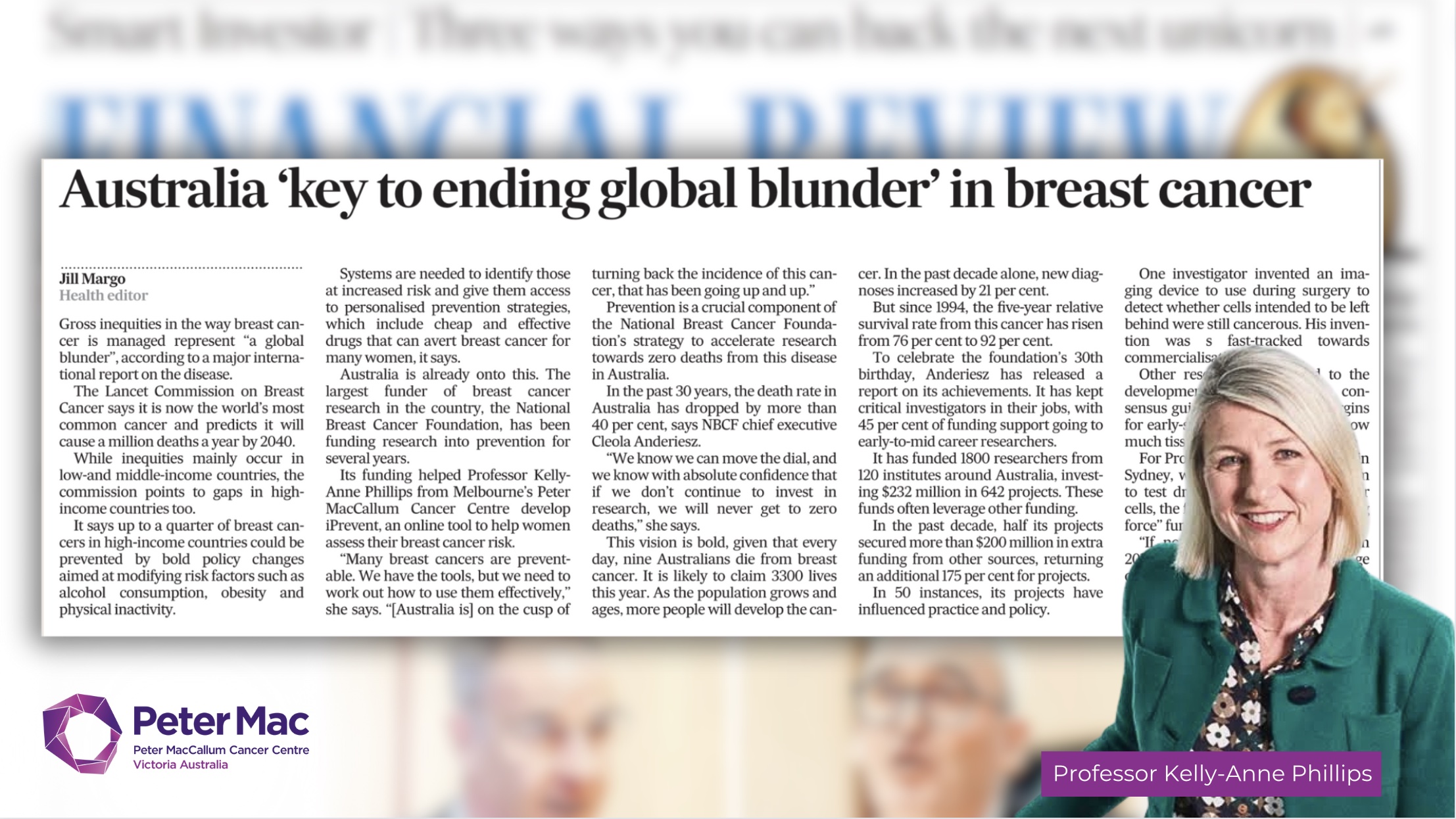The global picture of our most common cancer
17 April 2024

A global report on breast cancer, written by experts including from Peter Mac, has praised the 40% decline in mortality in countries like Australia while warning that many women were still “systematically left behind”.
The decline in mortality has occurred in many high-income countries over 30 years but is yet to be seen in most middle and low-income countries due to ongoing late diagnosis and treatment capacity issues.
The Lancet Breast Cancer Commission – authored by Peter Mac’s Professor Kelly-Anne Phillips, Professor Prue Francis and Dr Wanda Cui and international colleagues – says this is the world’s most common cancer with 2.3 million new cases in 2020.
This figure is forecast to rise to more than 3 million new breast cancer diagnoses a year globally by 2040, when deaths from breast cancer deaths were also expected to top 1 million a year.
“The Commission highlights what’s possible when women can access the very latest treatments and also effective screening and prevention initiatives, and our challenge to make these more widely available outside of high-income countries,” says Prof Phillips.
Profs Phillips and Francis chaired the Commission’s prevention committee, and a key recommendation was the need to further roll-out and refine systems which identify at-risk women so they can be offered an evidence-based intervention.
The 3 million new cases globally in 2040 was “neither acceptable nor inevitable as action now can prevent many of these future cancers,” the Commission notes.
The report also highlights the large geographical variations in annual incidence of breast cancer – ranging, in 2020, from fewer than 40 cases per 100,000 females in south-central Asia and central, middle, and eastern Africa, to more than 80 cases per 100,000 females in Australia, New Zealand, USA, Canada, and western and northern Europe.
Despite 20-30% of patients with early breast cancer relapsing after initial treatment, this is not typically recorded in national cancer registries and the global number of women living with metastatic breast cancer (MBC) is unknown.
When latest treatments are available to women, MBC outcomes have improved considerably over the past decade. Median survival for two major MBC subtypes (HER2-positive and ER-positive/HER2-negative) has reached five years using latest therapies, and some MBC patients now live 10 years or longer.
“Recent improvements in breast cancer survival represent a great success of modern medicine,” says the Commission’s lead author, Professor Charlotte Coles, from the Department of Oncology at University of Cambridge, UK.
“However, we can’t ignore how many patients are being systematically left behind. We hope that, by highlighting these inequities and hidden costs and suffering in breast cancer, they can be better recognised and addressed by health care professionals and policymakers in partnership with patients and the public around the world.”
Peter Mac’s iPrevent - an online tool which enables women to understand their personal breast cancer risk and discuss options with their GP - is an example of breast cancer prevention initiatives in use in Australia.
Read the Lancet Breast Cancer Commission in full here: The Lancet Breast Cancer Commission - The Lancet
Contacts:
For more information contact the Peter Mac Communications team on 0417 123 048.
About Peter Mac
Peter MacCallum Cancer Centre is a world leading cancer research, education and treatment centre and Australia’s only public health service dedicated to caring for people affected by cancer.
